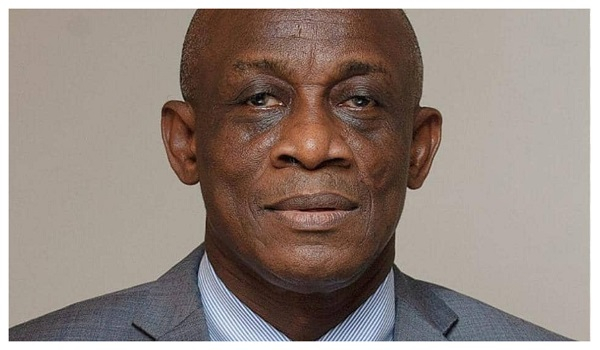'Father Anonymous,' play written by Roslyn professor, tells story of forgotten Revolutionary War hero - Newsday
While America remembers George Washington as the father of the country, Dr. Joseph Warren, a Revolutionary War hero, has been relegated to oft-forgotten history because of a battlefield bullet.
At least, that's part of what playwright and longtime constitutional history professor Robert Blecker hopes theatergoers discover when his play "Father Anonymous" opens Friday night in Manhattan.
Blecker, a longtime Roslyn resident said: "There's an injustice in forgetting those who led the sacrifice" and that Warren should be remembered "because he represents the best of America and the best of American political leadership."
A Roxbury, Mass., native, the Harvard-educated Warren was one of the earliest leaders of the American Revolution, friends with Founding Fathers John Hancock and Samuel Adams, and the man who sent Paul Revere and William Dawes on that infamous April 18, 1775, ride to warn the British were coming.
Robert Blecker of Roslyn has written a play about Dr. Joseph Warren, a Revolutionary War figure. Credit: Robert Blecker
Some, like Blecker, consider Warren's 1774 writing of The Suffolk Resolves — America's declaration of "legislative independence" — to be a groundbreaking precedent to the actual Declaration of Independence from British rule. But his legacy, though prominent, remains an obscure reference to most.
That is due, Blecker notes, because at the same time Washington was being commissioned as of the head of the Continental Army, Warren, met his maker. Though commissioned as a major general and serving as the 2nd President of the Massachusetts Provincial Congress, Warren fought as a private in the Battle of Bunker Hill, where he was struck and killed by a bullet on June 17, 1775, at the mere age of 34.
"Why is Joseph forgotten?" Blecker said. "Because he dies early."
In fact, Warren was widely celebrated at the time: Historians viewed his death as an act of martyrdom, commemorated in a famous 1786 painting by John Trumbull titled "The Death of General Warren at the Battle of Bunker Hill."
Blecker said: "Fourteen counties, including New York, Pennsylvania, Ohio, are named after him. Only three U.S. Presidents have more. There are a hundred towns named for him, a thousand streets. We know of Samuel Adams thanks to beer. We know of Paul Revere's ride, thanks to Longfellow and his inaccurate poem. But who knows who sent him on it? It was Joseph Warren. And he should be remembered."
Tyler Putman, senior Gallery Manager of Interpretation at the Museum of the American Revolution, concurred in an email, saying: "Joseph Warren shows us how people became revolutionaries. He was a key figure in the resistance movement in Boston that sparked the Revolutionary War, and he was friends with many of the people we've heard of, such as Samuel Adams and Paul Revere. But his death at the very beginning of the Revolutionary War at just 34 years old — 250 years ago this month at Bunker Hill — means he is far less known today."
A graduate of Great Neck North High School, Tufts and Harvard Law School, Blecker spent years at New York Law School researching and writing "Father Anonymous."
A prior work, a dramatic monologue titled "VOTE NO!", premiered at the Kennedy Center, traveling to 16 states as well as being featured on National Public Radio's "All Things Considered." Blecker also is currently working on, among his projects, a dramatic collage called "Voices From the Inside," based on 12 years of research inside Lorton Reformatory, a notorious Virginia prison closed in 2001.
A preview of "Father Anonymous" will take place Thursday night at the 99-seat AMT Theater at 354 West 45th Street in Manhattan, with the scheduled premiere on Friday. The two-act play, which features a cast of 13 in roles including Warren, Hancock, Adams and Revere, is slated to run through July 2. Tickets are available at a variety of online sites.
Patrick Boyce, lead park ranger for the sacrifice and service team at the Boston National Historical Park, described Warren as an indispensable figure of the American Revolution.
Boyce works at the Bunker Hill battlefield and said though he didn’t live to see Evacuation Day, Warren planted the seeds of the British’s defeat by dispatching troops to seize Fort Ticonderoga in New York, which was the first major American victory.
"As far as the British are concerned, the Battle of Bunker Hill is their victory. They seized the high ground at a significant human cost. But more importantly for them, they killed Warren ... Warren’s death was worth more than 500 men," said Boyce.












